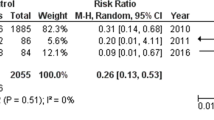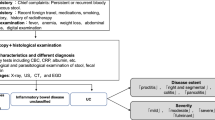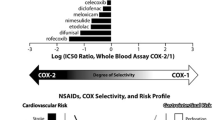Abstract
Background
Adherence to medications is important to maintain disease under control and to prevent complications in pregnant patients with ulcerative colitis (UC). To evaluate the incidence of non-adherence during pregnancy and its effect on relapse and pregnancy outcomes, we conducted a multicenter prospective study using a patient self-reporting system without physician interference.
Methods
Sixty-eight pregnant UC women were recruited from 17 institutions between 2013 and 2019. During the course of pregnancy, questionnaires were collected separately from patients and physicians, to investigate the true adherence to medications, disease activity, and birth outcomes. Multivariable logistic regression analysis was performed to identify the risk factors for the relapse or adverse pregnancy outcomes.
Results
Of 68 pregnancy, 15 adverse pregnancy outcomes occurred in 13 patients. The rate of self-reported non-adherence was the greatest to mesalamines in the first trimester, which was significantly higher than physicians’ estimate (p = 0.0116), and discontinuation was observed in 42.1% of non-adherent group. Logistic regression analysis revealed non-adherence as an independent risk factor for relapse [odds ratio (OR) 7.659, 95% CI 1.928–30.427, p = 0.038], and possibly for adverse pregnancy outcome (OR 8.378, 95% CI 1.350–51.994, p = 0.023). Among the subgroup of patients treated with oral mesalamine alone, the non-adherence was confirmed to be an independent risk factor for relapse (p = 0.002).
Conclusion
Non-adherence to mesalamine was underestimated by physicians in pregnant UC patients and contributed to disease relapse and possibly on pregnancy outcomes. Preconceptional education regarding safety of medications and risk of self-discontinuation is warranted.




Similar content being viewed by others
Abbreviations
- OR:
-
Odds ratio
- CI:
-
Confidence interval
- IBD:
-
Inflammatory bowel disease
- UC:
-
Ulcerative colitis
- LBW:
-
Low birth weight
- VAS:
-
Visual analogue scale
- TNF:
-
Tumor necrosis factor
References
Haynes RB, Sackett DL, Taylor DW. How to detect and manage low patient compliance in chronic illness. Geriatrics. 1980;35:91–97.
Jackson CA, Clatworthy J, Robinson A, et al. Factors associated with non-adherence to oral medication for inflammatory bowel disease: a systematic review. Am J Gastroenterol. 2010;105:525–539.
Kane S, Huo D, Aikens J, Hanauer S. Medication nonadherence and the outcomes of patients with quiescent ulcerative colitis. Am J Med. 2003;114:39–43.
Kawakami A, Tanaka M, Nishigaki M, et al. Relationship between non-adherence to aminosalicylate medication and the risk of clinical relapse among Japanese patients with ulcerative colitis in clinical remission: a prospective cohort study. J Gastroenterol. 2013;48:1006–1015.
Pedersen N, Bortoli A, Duricova D, et al. The course of inflammatory bowel disease during pregnancy and postpartum: a prospective European ECCO-EpiCom Study of 209 pregnant women. Aliment Pharmacol Ther. 2013;38:501–512.
Gallinger ZR, Rumman A, Nguyen GC. Perceptions and attitudes towards medication adherence during pregnancy in inflammatory bowel disease. J Crohns Colitis. 2016;10:892–897.
Perry J, Chen A, Kariyawasam V, et al. Medication non-adherence in inflammatory bowel diseases is associated with disability. Intest Res. 2018;16:571–578.
Rahimi R, Nikfar S, Rezaie A, et al. Pregnancy outcome in women with inflammatory bowel disease following exposure to 5-aminosalicylic acid drugs: a meta-analysis. Reprod Toxicol. 2008;25:271–275.
Severs M, Zuithoff PN, Mangen MJ, et al. Assessing self-reported medication adherence in inflammatory bowel disease: a comparison of tools. Inflamm Bowel Dis. 2016;22:2158–2164.
Julsgaard M. Adherence to medical treatment in relation to pregnancy, birth outcome & breastfeeding behavior among women with Crohn’s disease. Dan Med J. 2016; 63pii: B5263.
Burton MJ, Voluse AC, Patel AB, et al. Measuring adherence to hepatitis C direct-acting antiviral medications: using the VAS in an HCV treatment clinic. South Med J. 2018;111:45–50.
Bello C, Belaiche J, Louis E, et al. Evolution and predictive factors of relapse in ulcerative colitis patients treated with mesalazine after a first course of corticosteroids. J Crohn’s Colitis. 2011;5:196–202.
Romberg-Camps MJ, Dagnelie PC, Kester AD, et al. Influence of phenotype at diagnosis and of other potential prognostic factors on the course of inflammatory bowel disease. Am J Gastroenterol. 2009;104:371–383.
https://www.mhlw.go.jp/file/05-Shingikai-10801000-Iseikyoku-Soumuka/0000134652.pdf Accessed 15 Apr 2019
Fukuda T, Naganuma M, Sugimoto S, et al. The risk factor of clinical relapse in ulcerative colitis patients with low dose 5-aminosalicylic acid as maintenance therapy: a report from the IBD registry. PLoS ONE. 2017;12:e0187737.
Wang Y, Parker CE, Feagan BG, et al. Oral 5-aminosalicylic acid for maintenance of remission in ulcerative colitis. Cochrane Database Syst Rev. 2016;5:CD000544. https://doi.org/10.1002/14651858.cd000544.pub4.
Osterberg L, Blaschke T. Adherence to medication. N Engl J Med. 2005;353:487–497.
Nguyen TM, La Caze A, Cottrell N. What are validated self-report adherence scales really measuring?: a systematic review. Br J Clin Pharmacol. 2014;77:427–445.
Kleinman NJ, Manhart LE, Mohanraj R, et al. Antiretroviral therapy adherence measurement in non-clinical settings in South India. AIDS Care. 2015;27:248–254.
Selinger CP, Ochieng AO, George V, et al. The accuracy of adherence self-report scales in patients on thiopurines for inflammatory bowel disease: a comparison with drug metabolite levels and medication possession ratios. Inflamm Bowel Dis. 2018;25:919–924.
Bröms G, Granath F, Linder M, et al. Birth outcomes in women with inflammatory bowel disease: effects of disease activity and drug exposure. Inflamm Bowel Dis. 2014;20:1091–1098.
Shivhare SB, Bulmer JN, Lash GE. Immunity at the maternal–fetal interface. In: Mestecky J, Strober W, Russell M, eds. Mucosal immunology. 4th ed. New York: Academic Press; 2015:2231–2250.
Soler A, Morales C, Mademont-Soler I, et al. Overview of chromosome abnormalities in first trimester miscarriages: a series of 1,011 consecutive chorionic villi sample karyotypes. Cytogenet Genome Res. 2017;152:81–89.
Bressler B, Marshall JK, Bernstein CN, et al. Clinical practice guidelines for the medical management of nonhospitalized ulcerative colitis: the toronto consensus. Gastroenterology. 2015;148:1035–1058.
Haynes RB, Ackloo E, Sahota N, et al. Interventions for enhancing medication adherence. Cochrane Database Syst Rev. 2008;. https://doi.org/10.1002/14651858.CD000011.pub3.
D’Incà R, Bertomoro P, Mazzocco K, et al. Risk factors for non-adherence to medication in inflammatory bowel disease patients. Aliment Pharmacol Ther. 2008;27:166–172.
Lee J, Jee SR, Kim HW, et al. Factors associated with low adherence to oral 5-aminosalicylic acid in patients with ulcerative colitis. PLoS One.. 2019;. https://doi.org/10.1371/journal.pone.0214129.eCollection2019.
Peduzzi P, Concato J, Kemper E, et al. A simulation study of the number of events per variable in logistic regression analysis. J Clin Epidemiol. 1996;49:1373–1379.
Acknowledgments
This study was supported by a Grant-in-Aid for the Intractable Disease Project of the Ministry of Health, Labour and Welfare of Japan, and by Grants-in-Aid for Scientific Research from the Japanese Ministry of Education, Culture, Sports, Science and Technology. Special thanks to Makiko Oda for her professional help with analyzing data statistically.
Author information
Authors and Affiliations
Corresponding author
Ethics declarations
Conflict of interest
None.
Additional information
Publisher's Note
Springer Nature remains neutral with regard to jurisdictional claims in published maps and institutional affiliations.
Rights and permissions
About this article
Cite this article
Watanabe, C., Nagahori, M., Fujii, T. et al. Non-adherence to Medications in Pregnant Ulcerative Colitis Patients Contributes to Disease Flares and Adverse Pregnancy Outcomes. Dig Dis Sci 66, 577–586 (2021). https://doi.org/10.1007/s10620-020-06221-6
Received:
Accepted:
Published:
Issue Date:
DOI: https://doi.org/10.1007/s10620-020-06221-6




